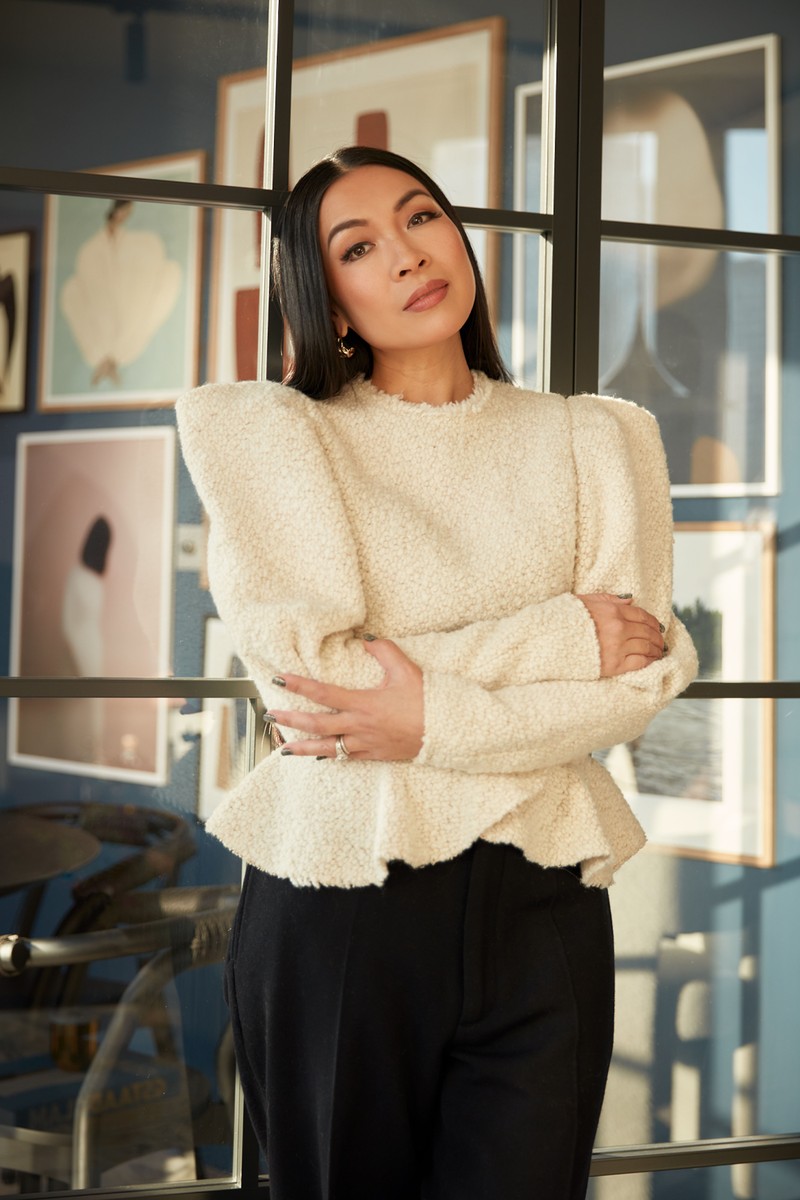An Inspiring Women Tells Us About The Worthy Charity She Supports

My husband and I have five daughters, Callie, Lily, Daisy and the twins. As a mother, I feel very blessed to have five healthy little girls, but it wasn’t always an easy journey. I had the misfortune of losing three babies during various stages of pregnancy. Then, my twin girls were born premature. At the beginning of my third trimester, I was diagnosed with placenta accreta spectrum and classified as extremely high risk. Placenta accreta is a serious, potentially life-threatening condition with a high maternal mortality rate. The risk was sudden, severe, maternal blood loss, before or during birth. I was told I could lose as much as 500ml of blood a minute, and you only have four litres of blood in your body.
The weeks and days following the diagnosis were long and anxious. I was put on bedrest for the last eight weeks and doctors said they might have to perform a hysterectomy to save my life. So, you can understand why I was nervous to move at all, in case I would bleed suddenly and go into premature labour. I felt scared, isolated and alone. The fact that the condition was potentially life threatening was also frightening – I had a husband and three young daughters and I wondered what would happen to them if I left them.
To minimise the risk, the doctors decided to deliver the twins six weeks early. While I understood the decision was made to save my life, it also caused me a lot of anxiety. I also had an overwhelming feeling of guilt. I felt responsible for my twins’ prematurity and powerless that I couldn’t keep them inside me for longer. I didn’t want them to struggle and worried if their prematurity might cause long-term effects.
At 34 weeks, two days before my planned surgery, I started to bleed and was rushed into hospital. It was a Sunday and they didn’t have the right team present to deal with my case. Luckily, my bleeding slowed and we were able to make it to my planned surgery. In the end, thanks to an incredible team of multidisciplinary doctors and surgeons, my placenta separated, and I only lost one litre of blood. My twin baby girls were delivered at 34 weeks. Poppy, who came first, struggled. She needed oxygen and a lung inflater and I wasn’t able to cuddle her as she was connected to tubes and monitoring devices, then rushed into the NICU. Rosie, who was born one minute later, was fine and stayed with me from birth.
Thankfully, Poppy made a good recovery, and only stayed in the NICU for one night. She came back to me in the ward the following day, and we were discharged a few days later. Being premature, their baby milestones were definitely slower, but they are both smiling and alert now. I am thankful to the team in the operating theatre who saved my life and delivered my babies safely.

My personal journey is why Borne's work resonates so deeply with me. Prematurity is an area of real need; it’s an issue which very much affects our future generations. In fact, prematurity is the leading cause of childhood mortality in the world today. It is a devastating problem and affects 60,000 families in the UK and over 15 million babies worldwide. Prematurity also leaves many babies with life-long disability. It destroys the joy of parenthood, replacing it with fear and anxiety and is too often unexplained. And yet, it can’t be stopped.
Borne is completely dedicated to its purpose – namely, the prevention of premature labour and preterm birth. Its mission is simple – it believes a baby’s first hours should not be its hardest or its last. Borne wants every child to have the chance of a full and healthy life, unaffected by disability. For me, charity is a way of life. It’s something that was deeply rooted in my upbringing – my parents always told me, “Your life starts when you start giving.” It’s as simple as that, and it was a concept I grew up with. To this day, it’s a belief that runs through everything I do. I don’t look at it as something that’s trendy or fashionable, it’s something I have a very deep and personal connection to.
Time is the most precious thing we have. If we can give our time, then that's the most precious gift. This is a research charity run by a team of only four people working in a medical field that many still don't understand. The uterus remains one of the least researched areas of the human body – which explains why my prescription was bedrest, the same women a hundred years ago were given. In fact, my doctor said if I was a generation older, they probably wouldn't have been able to save me.
Through last year’s Big Give initiative, we raised more than £100,000. But awareness of Borne’s mission is just as important as the money – everything counts. Prematurity isn’t something that happens to certain women. I’d had three relatively straightforward pregnancies before I had the twins. And yet, when I was faced with my condition, no one knew how to handle it or stop me from haemorrhaging, even with an MRI scan, a 4D scan, a 3D scan, and frankly, every scan the NHS has technology for. Hopefully, with research comes better technology and better diagnoses.
Borne isn’t the only charity I’m involved with – although I suppose they all have this common thread of family values. Care for Children finds homes for orphans in Asia; to date they've found homes for a million children. I also worked at Mother's Choice growing up and my mother is the chairman of the Hong Kong Breast Cancer Foundation. As a breast cancer survivor, she now raises awareness and even wrote a book for women who aren't necessarily educated in the space and want to learn more about prevention and recovery. I’m also involved with Make A Wish and a handful of animal charities.
Times are tough but if you have anything to spare, every penny counts. And it goes straight to the scientists who are researching prematurity. It’s very meaningful work and I would highly recommend getting involved with our fundraising and other activities – be it one of our treks to the North Pole or biking expeditions in Columbia.
If you’re looking for your own charity to support, my advice would be to find something you feel connected to personally and emotionally. That way, you’ll be so incentivised to help with their mission. There are so many organisations out there, but connecting one with your own story makes all the difference. If I can make even a small difference, I know it’ll have been worth it.
Visit Borne.org.uk for more information on the charity’s work and fundraising opportunities.
Photography by Nathan Richards. Special thanks to The Residential Towers of One Crown Place.
DISCLAIMER: We endeavour to always credit the correct original source of every image we use. If you think a credit may be incorrect, please contact us at info@sheerluxe.com.


